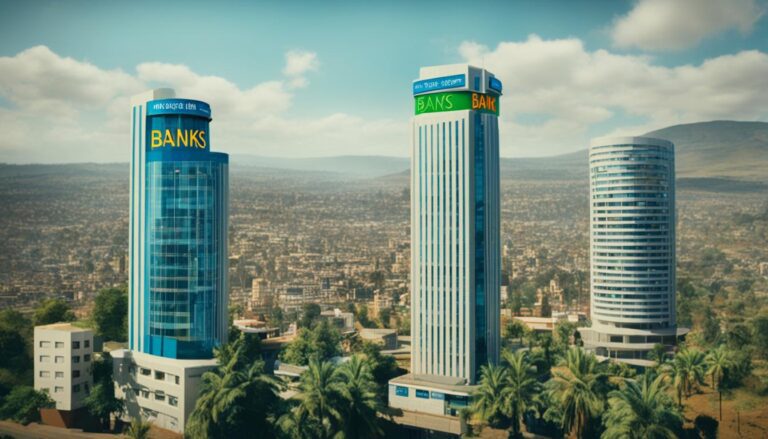How Is the Crime in Addis Ababa?
When we think of Addis Ababa, the bustling capital of Ethiopia, questions about its safety landscape often arise. Is it a city plagued by high crime rates? How does it compare to other African cities? Are the streets safe to walk at night? As we delve into the topic of crime in Addis Ababa, we uncover the reality behind the headlines and challenge common beliefs about this vibrant urban center.
Key Takeaways:
- Crime in Addis Ababa is relatively safer compared to other African cities.
- Thefts, scams, mugging, and robberies are still prevalent but can be managed with caution.
- Rural-urban migration and unemployment contribute to the city’s crime rate.
- Efforts are being made to improve safety in the urban environment.
- Crime prevention measures play a vital role in shaping the safety dynamics of Addis Ababa.
Overview of Crime in Addis Ababa
Although crime in Addis Ababa is generally safer than most African cities, there are still incidents of theft, scams, mugging, sexual harassment, and robbery. Criminal gangs often use distraction techniques such as begging or feigning illness. Robberies, especially at nighttime, are becoming more prevalent in public areas of the city.
Even though Addis Ababa has made progress in ensuring the safety of its residents and visitors, it is important to remain cautious and aware of potential criminal activities. Theft, including pickpocketing and bag snatching, can occur in crowded areas, such as markets and public transportation hubs. Tourists are often targeted by scams, where individuals pose as friendly locals offering assistance but have the intention of stealing personal belongings or money.
It is also worth noting that mugging incidents can happen, particularly in poorly lit areas or secluded streets. Sexual harassment is another concern, especially for women, and it is advisable to travel in groups or well-lit areas at night. Robbery is a more serious crime that can occur both in crowded places and secluded areas, often involving the use of force or weapons.
Distraction Techniques Used by Criminal Gangs
Criminal gangs in Addis Ababa often employ distraction techniques to carry out their illegal activities. One common technique is pretending to be in need, such as begging for money or food. They may approach unsuspecting individuals and create a diversion, allowing other members of the gang to steal their belongings. Another tactic is feigning illness or a sudden accident, attracting the attention of passersby while their accomplices seize the opportunity to commit theft or robbery.
These distraction techniques can make it challenging for victims to react quickly or realize that a crime is taking place until it’s too late. By remaining aware of their surroundings and avoiding engaging with suspicious individuals, residents and visitors can minimize their vulnerability to such scams.
Types of Crime in Addis Ababa

Socioeconomic factors, particularly youth unemployment, play a significant role in the occurrence of crimes in Addis Ababa. The city experiences various property crimes, including theft, snatch theft, robbery, fraud, and breach of trust.
Addis Ababa ranks second in terms of the frequency of criminal activity in the Oromia Region. The combination of socio-economic factors and unemployment among the youth creates an environment that fosters criminal behavior.
Theft and Snatch Theft
Theft is one of the most common crimes in the city. Unemployment and poverty drive individuals to resort to stealing to fulfill their basic needs. Snatch theft, where perpetrators quickly grab belongings from unsuspecting victims, is also prevalent. Tourists and residents should remain vigilant and take precautions to avoid becoming victims of these crimes.
Robbery
Robberies, both armed and unarmed, are a significant concern in Addis Ababa. Criminals target individuals and businesses, taking advantage of their vulnerability. It is advisable to avoid walking alone in isolated areas, especially at night, and be cautious with personal belongings and valuables.
Fraud and Breach of Trust
The city also faces challenges related to fraud and breach of trust. Scams targeting unsuspecting individuals are on the rise, with fraudsters using various tactics to deceive victims. Additionally, instances of breach of trust, such as embezzlement or misappropriation of funds, occur in both public and private sectors.
Property crimes, including theft, snatch theft, robbery, fraud, and breach
of trust, are frequent in Addis Ababa
Fluctuating Crime Rate in Addis Ababa

The crime rate in Addis Ababa is not consistent and fluctuates from year to year. In recent years, we have observed an increase in various types of crimes throughout the city. These crimes include property crimes, mobile purse snatching, robbery, theft, and mugging.
According to available data, the number of crimes registered in Addis Ababa reached 69,301 in 2013, 56,242 in 2015, and 64,437 in 2017. These fluctuations highlight the dynamic nature of crime in the city and the need for continuous efforts in crime prevention and law enforcement.
Unemployment and Crime in Addis Ababa
Unemployment is a significant issue in Addis Ababa, with a high percentage of unemployed individuals, especially among young people. The city is grappling with the challenges of rural-urban migration and the lack of effective governmental policies that exacerbate the connection between unemployment and crime. It is important to address these socio-economic factors to mitigate the impact on the city’s safety landscape.
In 2018, Addis Ababa had a total unemployed population of 264,580, accounting for 20% of the unemployed population in Ethiopia. This statistic underscores the magnitude of the issue within the city and highlights the need for targeted interventions and job creation opportunities.
Efforts to combat unemployment and its correlation to crime require a multi-faceted approach, including comprehensive job training programs, investment in small and medium-sized enterprises, and the revitalization of key sectors to generate employment opportunities. By addressing the root causes of unemployment, such initiatives have the potential to reduce the vulnerability of individuals to engage in criminal activities.
The sequel follows with an exploration of the safety dynamics in Addis Ababa, shedding light on the various factors that contribute to the city’s overall crime rate.
Safety Index of Addis Ababa
Addis Ababa’s safety index reveals a moderate level of safety in the city. With a crime index ranking at 168, the safety index stands at 54.09. Safeguarding home security is a concern for residents, along with worries about mugging, car theft, and safety while walking alone during both day and night.
While Addis Ababa maintains a relatively safe environment, it is important to remain vigilant and take necessary precautions to ensure personal safety and protect property. Understanding the city’s crime index and safety landscape can help residents and visitors make informed decisions to mitigate risks and enhance their overall experience in Addis Ababa.
To give you a visual representation, here is an image illustrating the concept of safety in Addis Ababa:
Perception of Crime and Safety in Addis Ababa
The perception of crime and safety in Addis Ababa is a subjective experience influenced by personal encounters and individual factors. While Addis Ababa is generally safer than many other African cities, some residents and visitors may have a perception of increasing crime in recent years, leading to concerns about theft and assault.
It’s important to understand that crime perception can be shaped by various factors such as media coverage, personal experiences, and anecdotes from others. While objective crime data is valuable, individuals’ fears and worries about their safety play a significant role in shaping their perception of the city.
Moreover, the perception of safety can vary from person to person. Some individuals may feel unsafe due to isolated incidents or specific areas with higher crime rates, while others may have a more positive perception based on their personal experiences or the safety measures they take.
Overall, it is crucial to consider the diverse perspectives and subjective experiences when assessing the crime and safety situation in Addis Ababa. Both the objective crime data and the subjective perception of safety contribute to our understanding of the city’s safety landscape.
Importance of Addressing Safety Concerns
Addressing the worries about theft and assault is essential for maintaining a sense of security and well-being among residents and visitors in Addis Ababa. Efforts to reduce crime and enhance safety measures should be based on accurate crime statistics and an understanding of the community’s concerns.
By addressing the specific safety concerns and implementing targeted crime prevention strategies, city authorities can work towards creating a safer environment for everyone and improving the overall perception of safety in Addis Ababa.
Ultimately, addressing crime perception and safety concerns is a collective effort that requires collaboration between law enforcement agencies, community organizations, and citizens themselves. Together, we can create a city that not only has a lower crime rate but also fosters a sense of safety and security for all.
Conclusion
When it comes to crime in Addis Ababa, it’s important to note that the city is relatively safer compared to many other African cities. While factors like unemployment and rural-urban migration contribute to the crime rate, efforts are being made to improve safety in the urban environment.
In recent years, crime prevention measures and initiatives have played a vital role in shaping the safety dynamics of Addis Ababa. These efforts aim to create a secure and peaceful environment for residents and visitors alike.
Despite the existence of crime, it’s crucial not to overlook the positive aspects of Addis Ababa’s safety landscape. The city is taking active steps to address socioeconomic factors that contribute to criminal activities. By prioritizing effective crime prevention strategies, Addis Ababa demonstrates its commitment to creating a secure and prosperous urban environment.




